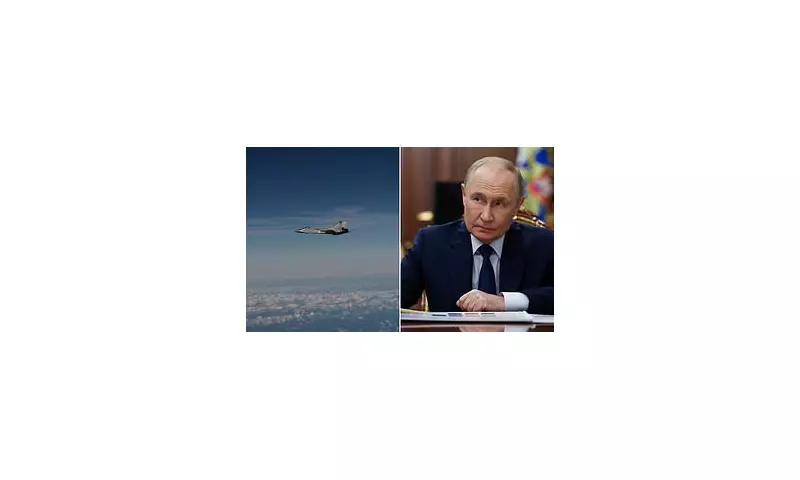
Vladimir Putin has unleashed a dangerous new phase in his hybrid warfare campaign against Europe, with intelligence reports confirming the Russian president has personally ordered increased drone incursions targeting Western infrastructure. The escalation became terrifyingly real this week as Brussels' Zaventem Airport - Belgium's primary international hub - was forced to shut down completely overnight due to security threats.
Chaos in the Skies: Europe's Aviation Under Siege
The unprecedented closure of one of Europe's busiest airports sent shockwaves through diplomatic and security circles. Thousands of passengers faced massive disruptions as flights were cancelled or diverted, with airport authorities citing "specific and credible" threats to aviation security. The incident represents the most significant successful disruption of European air travel since Putin began weaponising migration flows and energy supplies.
Kremlin's Shadow War Reaches Critical Phase
Security analysts confirm this marks a strategic shift in Moscow's approach to undermining European stability. Rather than relying solely on traditional military posturing or economic pressure, the Kremlin is now deploying coordinated drone operations designed to test NATO's defences and create maximum civil disruption.
European intelligence services have detected a worrying pattern:
- Systematic testing of air defence response times across multiple NATO members
- Targeting of critical infrastructure including airports, energy facilities and communications networks
- Increasing sophistication in drone technology and deployment tactics
- Coordinated timing with other hybrid threats including disinformation campaigns
NATO's Response: Between Caution and Confrontation
The forced closure of Brussels Airport presents NATO with a complex dilemma. While member states must protect civilian infrastructure and ensure passenger safety, there are growing concerns about yielding to Russian intimidation tactics. Defence officials are now urgently reviewing protocols for dealing with non-military aerial threats that fall below the threshold of conventional warfare.
"This isn't just about drones in the sky - it's about Putin probing for weaknesses in European unity and resilience," a senior NATO security official revealed. "Every time we close an airport or disrupt civilian life, he achieves a psychological victory."
The Human Cost: Travellers Bear the Brunt
For ordinary passengers caught in this geopolitical standoff, the consequences are very real. Business travellers missed crucial meetings, families were separated overnight, and holiday plans lay in ruins as airport authorities scrambled to maintain security while minimising disruption.
The incident at Zaventem serves as a stark warning that Putin's hybrid war is no longer confined to battlefields in Ukraine or energy pipelines. The front lines now extend to European airports, power grids and digital infrastructure, creating a permanent state of low-level conflict that threatens to become the new normal.





